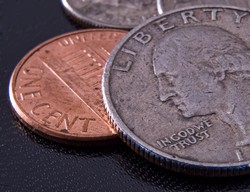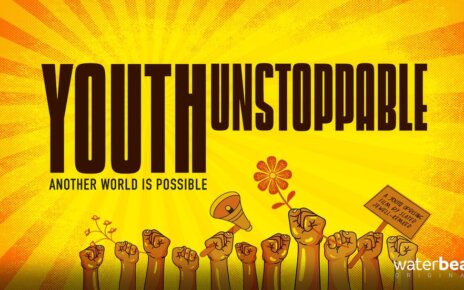The COVID-19 pandemic has caused a disruption in the circulation of coins due to unforeseen bank and business closures. As a result, the U.S. is in the midst of a coin shortage with no foreseeable end.
Restaurants, grocery stores, and other businesses alike are asking customers to pay with credit card, debit card, or exact change. “As someone who normally pays for things in cash, I’ve had to start using my credit card more frequently. A lot of places aren’t accepting cash or require exact change that I don’t have,” said sophomore Sarabeth Nemetz. “There was one time when I was using self-checkout at Target and didn’t realize that none of the machines were accepting cash, which is how I was planning to pay. If I didn’t have a card, I wouldn’t have been able to purchase the things I had in my cart.”
“The U.S. Mint makes all of the coins, but with the pandemic they had to curtail their operations and are shut down in some locations,” explained Douglas Stives, Specialist Professor of Accounting. “They aren’t producing as many coins and to make the situation worse, many Americans are hoarding coins because they’re not going out.”
Stives noted that between a lack of production and a lack of circulation, coins have gradually become harder and harder to find. He explained that as a result, stores are often unable to give change to customers who pay in cash. “If you go to the bank and ask for a roll of quarters, they aren’t going to give them to you because there’s a tremendous shortage. They’re not making as many and they’re not having as many turned in,” said Stives. “Stores that go to the bank for change can’t get it, which is why you see a lot of signs asking you to pay with [credit] card or exact change because they have little to no change to give you.”
Zack Malecki, partner in several local Bubakoo’s Burrito chains, offered further insight regarding this issue. “It used to be fairly easy to get coins at any bank on a daily basis, in any amount. Although it has subsided a bit, most banks set restrictions on how much change you could receive at one time,” Malecki explained. “Luckily, cash transactions in our restaurant have dropped significantly as mobile app orders have taken off.”
“This would be a wonderful opportunity for the U.S. government to stop producing pennies and nickels since they’re already behind in production,” said Stives. “It sounds easy, but it would take an act of Congress to take this action.”
Jeff Christakos, Specialist Accounting Professor and Chair of the Accounting Department, offered a different perspective to this proposed approach. “In lower income areas, there’s less of a tendency to actually have banking relationships,” he said. “A lot of transactions take place with debit cards, credit cards, things like that, but if you don’t have that and don’t have a banking relationship, now you’re relying on cash. Aside from being a financial issue, that’s also a cultural issue. The negative effects of the coin shortage are biased toward lower income people.”
Christakos also explained that similar to how the coin shortage has a greater effect on low income communities, it also has a more notable impact on businesses with smaller profit margins. “When you’re trying to break a dollar and don’t have coins, that’s a problem. Even if you have coins, you might not have pennies, so now you have to round things up to ten cents or quarters and now your margins are negative, and so you’re going to lose money,” said Christakos. “For lower priced items, you have to be able to get down to as specific of a price as possible. If we were to get rid of these lower value currencies, the prices for these products would be raised. There’s a wide range between a dollar and two dollars.”
Conversely, Sales Manager and Vice President of OceanFirst Bank Mike Frankovich explained how his field sees very little of this issue. “I don’t really interact with the part of the market that is most affected by the coin shortage. I deal with mortgages and residential loans, so all of our funds come from the bank’s money. We don’t have to deal with coins, so this shortage doesn’t really bother us,” explained Frankovich.
“The Mint needs to increase production and banks need to reopen and function as normal for this shortage to begin to resolve itself,” said Stives. “Right now, banks are making a large amount of their profits from people using their credit cards, so they want people to continue using cards instead of cash. I don’t want to say it’s a conspiracy, but I think there’s no quick fix for the shortage because the government and the banks aren’t anxious to fix it.”
Similarly, Christakos also believed that the U.S. government might not be in much of a rush to confront this issue. “It helps the government if we use less currency because the reporting is automatic in credit cards and leaves behind retrievable data. It becomes a full data set for the IRS to figure out how much people should be reporting on their tax returns,” said Christakos. “I’m not so sure that the government isn’t intentionally slowing it down.”
IMAGE TAKEN from Pexels.com




